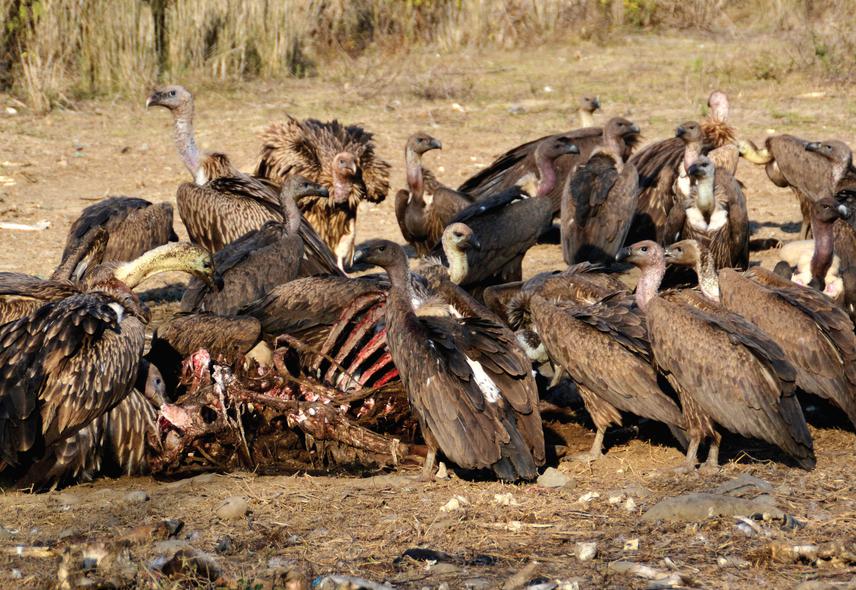Khadananda Paudel
Other projects
5 Sep 2016
Involving Veterinary Practitioners for the Conservation of Critically Endangered Vultures in Eastern Lowland of Nepal
19 Jan 2018
Evaluating the Factors Limiting the Conservation of Critically Endangered Red-Headed Vulture and Engaging Local Community for the Species Protection in Nepal
The project will implement community based approach to stop veterinary use of diclofenac and conserve vultures in Kailali and Kanchanpur districts of Nepal.

Road transects in India indicates that Oriental White-backed Vultures declined by 99.9% over the period 1992 to 2007, and Long-billed and Slender-billed Vultures decreased by 96.8% over the same period (Prakash et al. 2007) and Red-headed Vulture Sarcogyps calvus declined by 91% from 1990s to 2003 in India (Cuthbert et. al. 2006). Within Nepal, research and monitoring of vulture species has been undertaken in lowland areas and has revealed similar declines of 91% for Oriental White-backed Vultures Gyps bengalensis, and 96% for Slender-billed Vulture Gyps tenuirostris between 1995 and 2011 (Chaudhary et al. 2011). Due to these declines four vulture species of South Asia, Oriental White-backed Vulture Gyps bengalensis, Long-billed Vulture Gyps indicus and Slender-billed Vulture Gyps tenuirostris have been listed by IUCN as “Critically Endangered” and one vulture species Egyptian Vulture Neophron percnopterus listed as “Endangered” (IUCN 2013). The cause of these declines has been shown to be the veterinary drug diclofenac (Oaks et al. 2004, Swarup et al. 2007), which is widely used to treat livestock in Asia.
Subsequent to the dramatic population declines of critically endangered vultures due to overuse and toxicity of the anti-inflammatory veterinary drug diclofenac, Bird Conservation Nepal (BCN) started conservation actions through Vulture Conservation Programme in the early 2000s. Although veterinary use of diclofenac was banned in Nepal in 2006, human-intended diclofenac continues to be used for veterinary purposes, requiring continuous conservation efforts. BCN is now working on a provisional Vulture Safe Zone in the western lowlands of Nepal.
This project, led by Bird Conservation Nepal, will enhance and strengthen community capacity to manage and sustain the vulture safe feeding site at Khutiya, Kailali and will conserve vultures around Suklaphanta Wildlife Reserve and Kailali District using a community based approach involving advocacy, sensitization and the collection of pledges from veterinarians.
The objectives of the project are:
To minimize the illegal use of diclofenac and promote safe alternative NSAIDs and to minimize disturbances in the nesting areas minimized through extensive awareness activities
To enhance the capacity of local community groups, local government bodies, and local youths to raise funds for vulture conservation, promote tourism at safe feeding sites and discourage the use of diclofenac locally